DUBAI: Since fighting between Israel and the Palestinian militant group Hamas erupted on Oct. 7, Washington and its European allies have sought to contain the conflict and prevent it from spilling over into the wider region.
As soon as Israel mounted its military assault on the Gaza Strip — from where Hamas launched an unprecedented attack on southern Israel — Lebanon’s Hezbollah kicked off its own campaign of cross-border strikes. This frustrated the efforts of UN peacekeepers, stationed along the Blue Line separating Israel and Lebanon, to dial down tensions.
As a vastly more powerful force than Hamas, with access to sophisticated drone and missile technology supplied by Iran, any full-scale conflict involving Hezbollah would likely be many times more destructive for Israel.
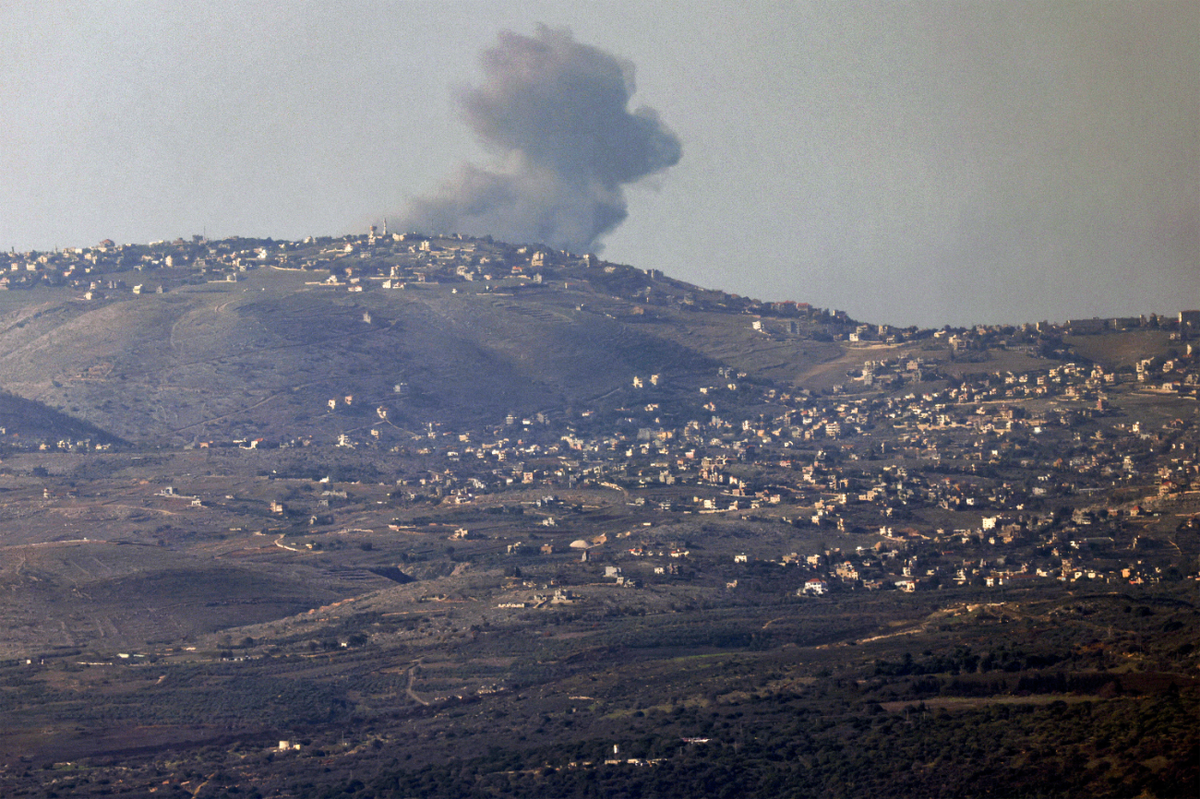
Smoke billows across the horizon along the hills in southern Lebanon from Israeli bombardment on December 10, 2023. (AFP)
The Israeli Defense Forces has responded to Hezbollah’s attacks with air, drone and artillery strikes on southern Lebanon, leaving 120 people, mostly the latter’s fighters, dead. In turn, Israel has suffered 10 casualties, including six soldiers.
Although the exchanges are the worst since the 30-day war of 2006, both sides have avoided direct clashes and incursions that could result in a serious escalation.
 There is little appetite among lawmakers in Lebanon’s caretaker government, and the wider population, for a war with Israel, especially as the country grapples with its worst economic crisis in living memory.
There is little appetite among lawmakers in Lebanon’s caretaker government, and the wider population, for a war with Israel, especially as the country grapples with its worst economic crisis in living memory.
“Believe me when I tell you, our hearts bleed with Gaza, but we cannot withstand another war on our own soil,” Ali Abdullah, a 37-year-old Lebanese citizen who is jobless, told Arab News.
“Necessities have become luxuries to many of us. To drag Lebanon in its current state into another war would be callous. How can we answer a call to arms on empty stomachs?”
Hezbollah’s hesitation to plunge into a full-blown war is also partly a result of sustained Western military and diplomatic pressure.
Since October, the US has stationed two strike carrier groups and a nuclear submarine in the Eastern Mediterranean and the Gulf to deter escalation by Hezbollah and other groups sympathetic to Hamas.
Amos Hochstein, deputy assistant to US President Joe Biden and a senior adviser for energy and investment, traveled to Lebanon in November to warn Lebanese officials and Hezbollah not to escalate the conflict.
Hassan Nasrallah, the leader of Hezbollah, has said that the main goal of his militia’s attacks on Israel is to drain the IDF’s military resources that would otherwise have been used in Gaza.
But as he watches Hamas’ destruction as a military organization, his fighters have a tough choice to make: whether to sit back and watch the Gaza leg of the Iran-backed so-called Axis of Resistance get dismantled, or to throw in their lot with Hamas in an effort to save it.
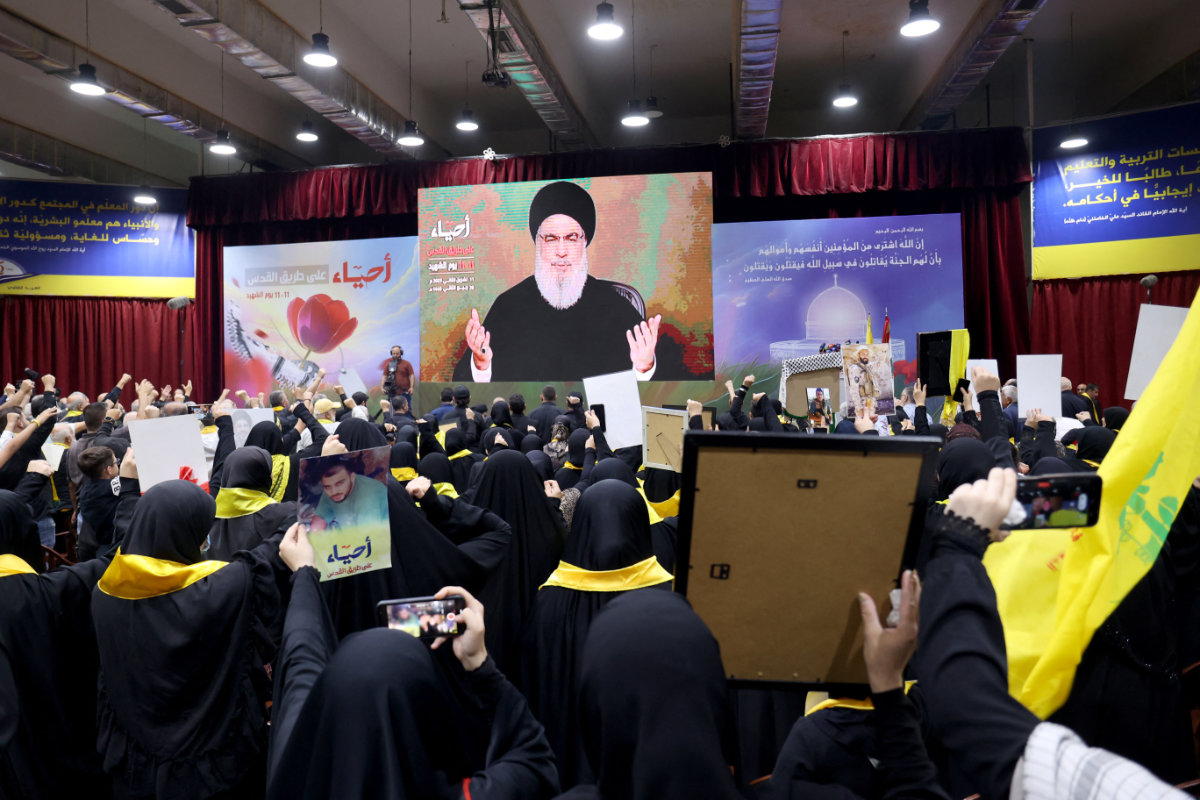
Hezbollah fighters and party supporters watch Hassan Nasrallah, the head of the Hezbollah Lebanese Shiite Muslim movement, deliver a televised address on a large screen at a venue in Beirut on November 11, 2023. (AFP)
“I think they wouldn’t. They would stick to the sidelines,” Firas Maksad, a senior fellow at the Middle East Institute, told Arab News previously. “Hezbollah and Iran both have a preference to avoid a larger direct confrontation with Israel.”
Maksad and other analysts believe that as the first line of deterrence and defense for the Iranian regime and its nuclear program if Israel decides to strike, Hezbollah is not going to be wasted on saving Hamas.
Even so, as the IDF encircles the last holdouts of Hamas in Gaza and continues to strike targets within Lebanon and Syria, the likelihood of a regional flare-up continues to be strong.
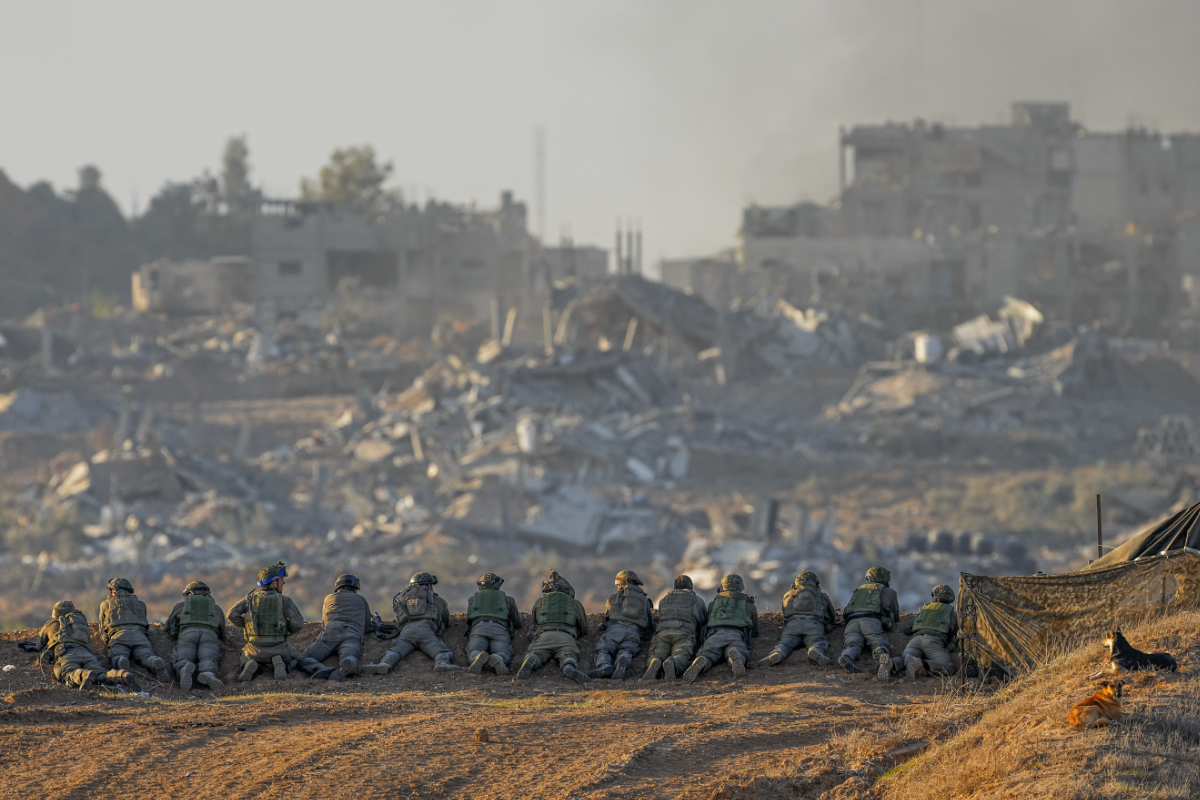
Israeli soldiers take positions near the Gaza Strip border in southern Israel on Dec. 11, 2023, as the war with Palestinian militants continue. (AP Photo)
Defense analysts say Hezbollah has massed much of its elite Radwan fighting force on the border and is using new weapons. This includes the so-called Burkan short-range rockets that can carry more than 1,000 pounds (453 kg) of explosive material, and which inflicted severe damage on an Israeli military outpost last month.
According to a recent Wall Street Journal report, Hezbollah possesses GPS-guided weapons capable of striking the entirety of Israeli territory; highly accurate, heavy-payload SCUD missiles, as well as a version of the lethal Syrian-made Tishreen missile; and plenty of Kornet antitank missiles equipped with laser-guided munitions.
All this is on top of an expanded arsenal of an estimated 150,000 rockets.
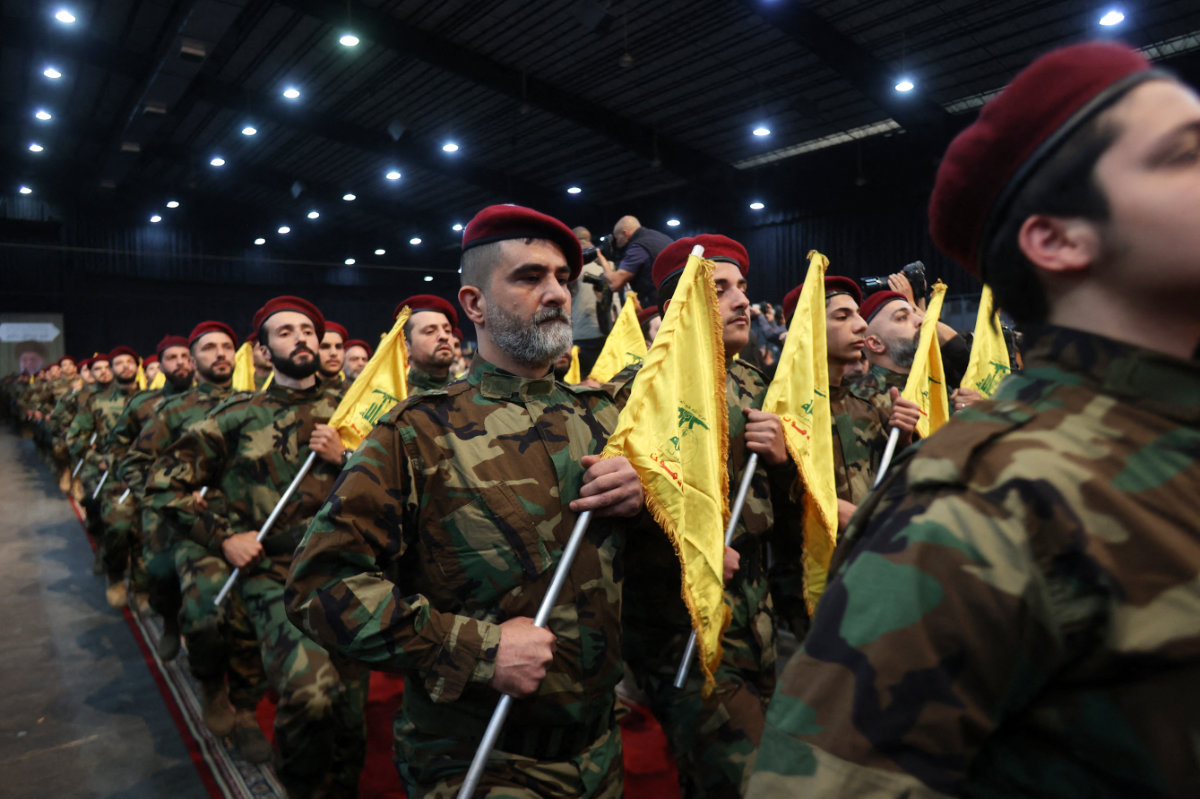
Hezbollah fighters parade in Beirut's southern suburbs on April 14, 2023, to mark Al-Quds (Jerusalem) Day, a commemoration in support of the Palestinian people celebrated annually on the last Friday of the Muslim fasting month of Ramadan. (AFP/File photo)
As a deterrent, Israel’s Prime Minister Benjamin Netanyahu issued a thunderous threat last week — Beirut and southern Lebanon would be turned “into Gaza and Khan Younis” if cross-border attacks by Hezbollah escalated. Israeli troops and Hamas militants are currently locked in deadly combat for control of Khan Younis, Gaza’s second-biggest city.
According to Meir Javedanfar, a lecturer at Tel Aviv’s Reichman University, Israeli tolerance for Hezbollah threats is at an all-time low.
“Benny Gantz, the Israeli defense minister, has told the Americans that Israel wants Hezbollah to evacuate the areas adjacent to its borders,” he told Arab News.
“This is in accordance with UN Security Council Resolution 1701, which states they are not to be there in the first place. This is what Israel is aiming for.”
Resolution 1701 was the agreement that ended the 2006 war. It called for “security arrangements to prevent the resumption of hostilities, including the establishment between the Blue Line and the Litani River of an area free of any armed personnel, assets and weapons other than those of the government of Lebanon and UNIFIL (UN Interim Force in Lebanon).”
Hezbollah’s continued presence in the area could be provocative enough for the IDF to move against the group once it has finished with Hamas.
Israel has deployed possibly up to 100,000 soldiers along the northern border, evacuated 80,000 local residents, and transformed some border communities into military bases due to the perceived threat of a Hezbollah invasion.
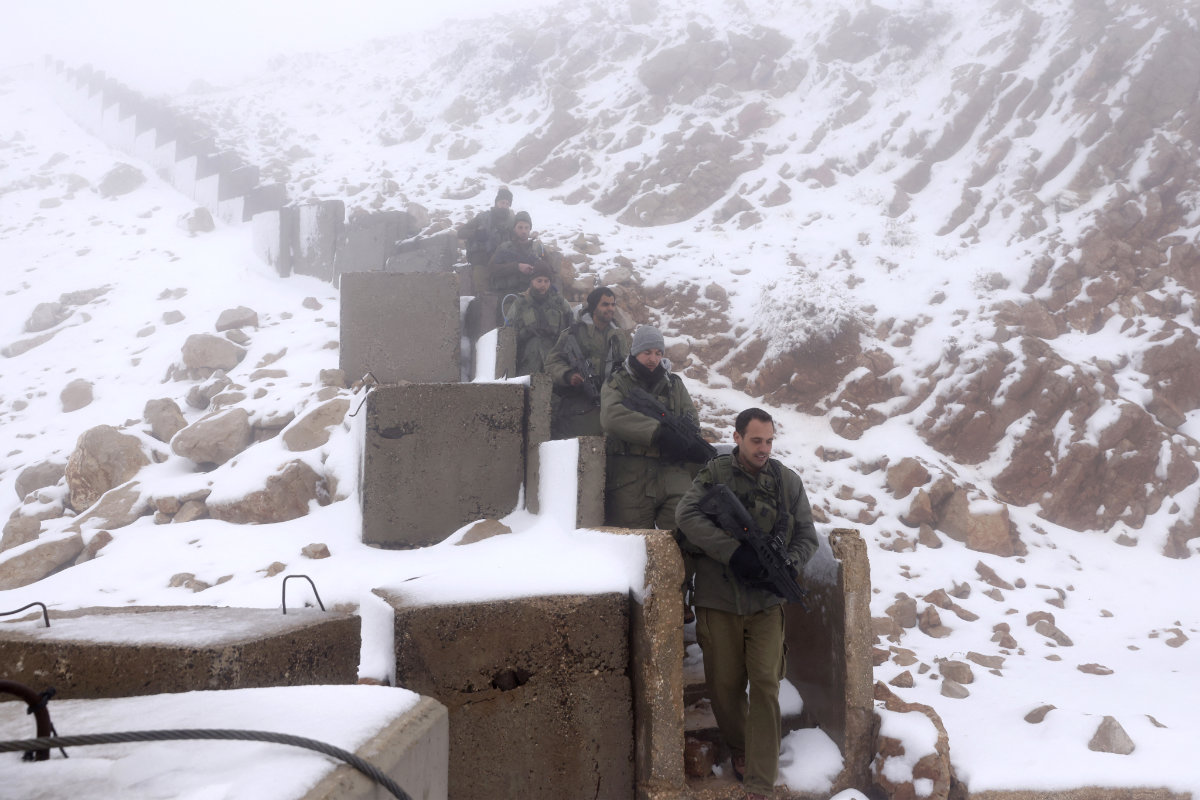
Israeli soldiers patrol on the top of the Mount Hermon near the border with Lebanon in the Israel-annexed Golan Heights amid increasing cross-border tensions with Hezbollah militants. (AFP)
“We saw what happens when you have Hamas on your border,” said Javedanfar. “It led to such a disaster on Oct. 7.
“We have a new situation. The Israeli government is going to pressure the Americans and other countries to understand that it will not live with a Hezbollah military presence on its borders anymore.
“After Oct. 7, the tolerance for Hezbollah’s threats has become very low. It could be next week, it could be five years from now. Who knows? But Israel will terminate the Hezbollah threat.”
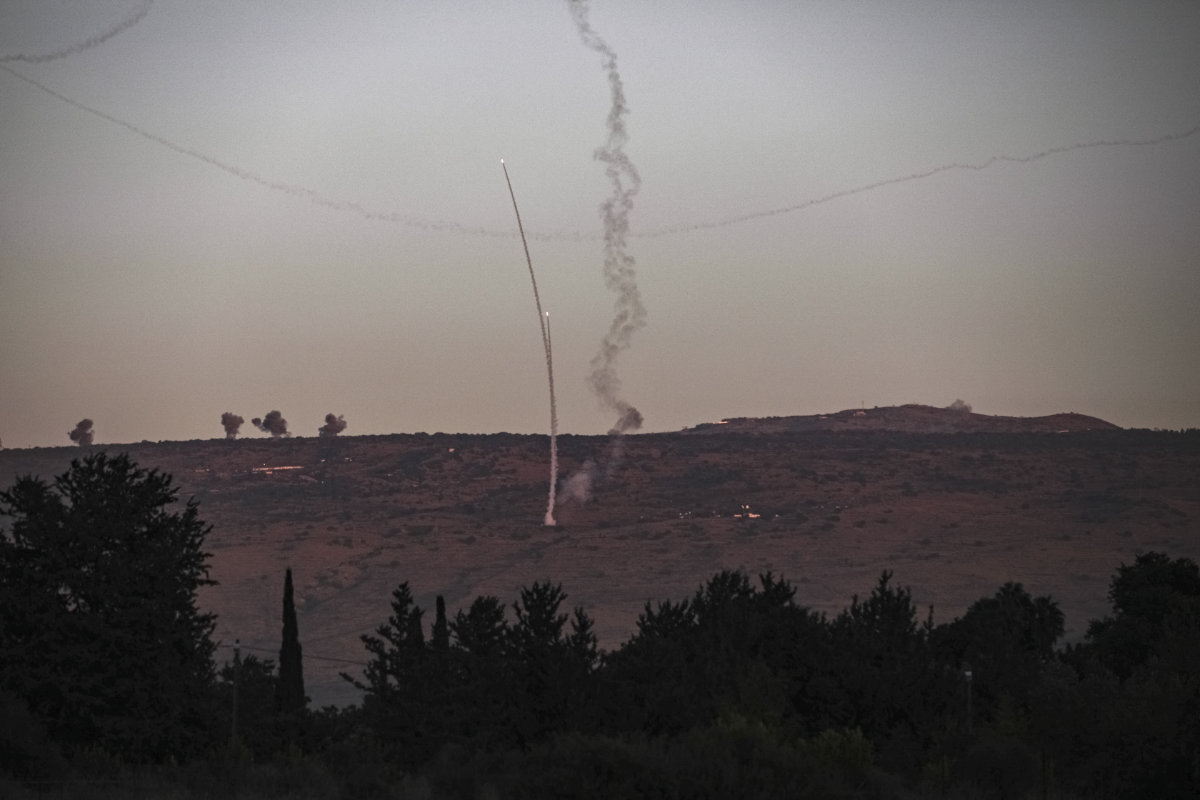
Rockets fired from southern Lebanon are intercepted above a position across the border near Kibbutz Dan in northern Israel on November 7, 2023 amid increasing cross-border tensions between Hezbollah and Israel. (AFP)
Military analysts believe the Israeli security establishment had convinced itself that the threat posed by Hamas had been contained, only to be blindsided by the attack of Oct. 7, which resulted in the deaths of some 1,400 people, primarily civilians, and the taking of more than 240 hostages.
It is a mistake they will not want to make again, Javedanfar suggested.
“We believed they had changed, that they had matured from an extremist military organization into one that is interested in developing Gaza’s economy and becoming more responsible,” he said.
“We were proven wrong. All these assumptions were proven wrong. We saw the devastating consequences of being wrong regarding Hamas, and now we are asking the same question regarding Hezbollah. Do we want to live with its threats on our borders? And its 150,000 missiles?
“Israel has over 300,000 military personnel in reserve forces and is willing to use them in order to deter Hezbollah away from its borders.”

Tzachi Hanegbi, head of the National Security Council of Israel, recently said that once Hamas is defeated, Israel may have to go to war with Hezbollah or else citizens may not want to return to the northern areas.
Although Israel would prefer not to fight a war on two fronts, Hanegbi said it may have to “impose a new reality” when it comes to Hezbollah.
Not every analyst, though, is convinced that Israel has the means, the will or the international backing to mount a successful military campaign against the formidable Hezbollah.
“A full-scale war with Lebanon will be a burden on Israel,” Nadim Shehadi, a Lebanese economist and columnist, told Arab News. “But it will be too costly economically and psychologically for Israel not to attack Hezbollah.”
At the same time, Shehadi believes the complete defeat of Hamas is beyond Israel’s means, especially now that global public opinion is shifting against the Israelis.
“What Hamas has achieved in terms of victory is destroying Israeli self-perception,” he said.
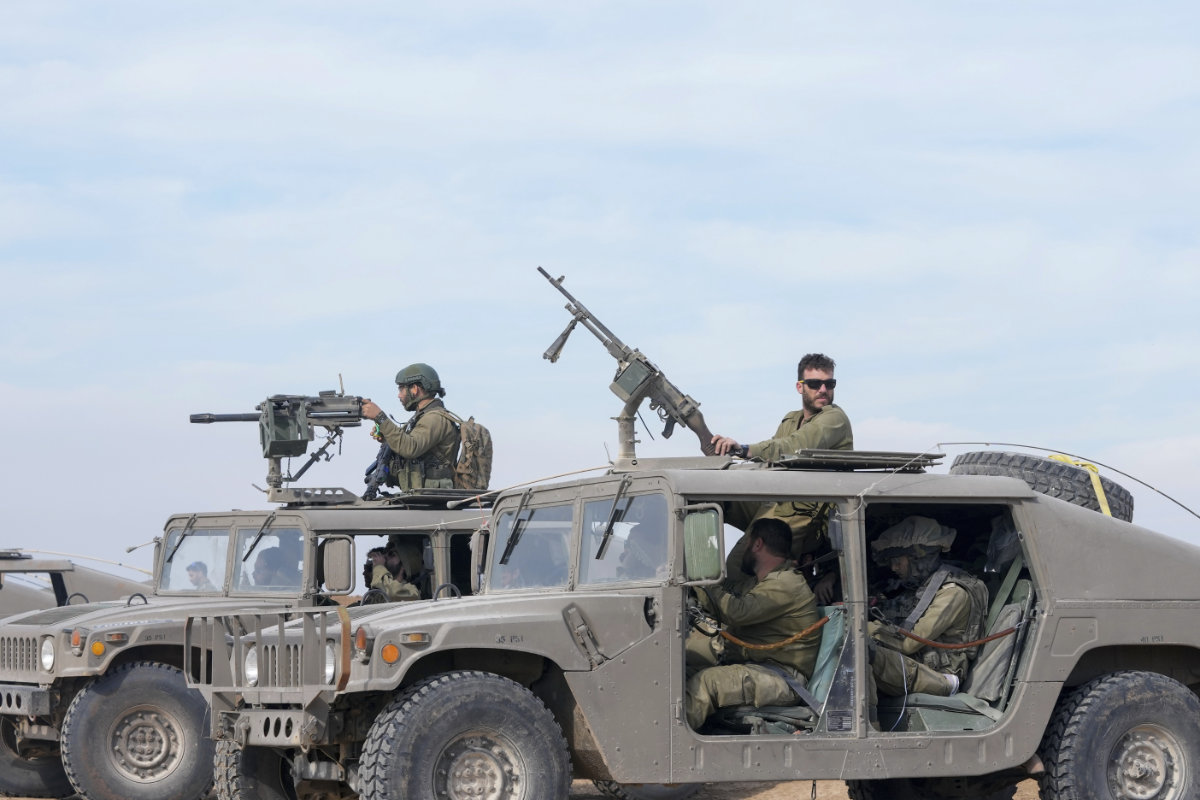
Israeli soldiers gather near the border with the Gaza Strip, southern Israel, Friday, Dec. 8, 2023. (AP Photo))
“Two core beliefs were shattered. One being that the Israeli government created a safe place where Jews can be protected by their state. This has crumbled as citizens feel neither safe nor secure and have been fleeing the Galilee.
“The second being that the Israeli army is moral, that it abides by international law and humanitarian rules. This has also crumbled. Both the world and Israelis don’t believe that anymore. They have gone mad in Gaza.”
More than 18,000 people have been killed in Gaza since Oct. 7, most of them women and children, according to the Hamas-controlled Health Ministry.
“These are also gains for Hezbollah,” said Shehadi. “Hezbollah is watching what is being carried out in Gaza now.”
However, Shehadi too does not believe Hezbollah wants a war with Israel — at least not yet.



















